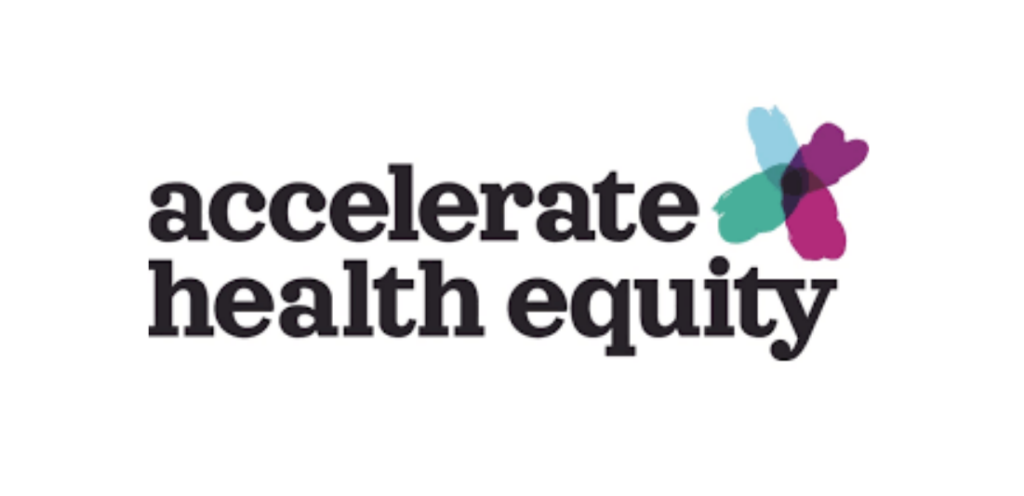Accelerate Health Equity Initiative Seeks to Dismantle Racism, Advance Health

Members of CHIBE are co-leading an initiative with a bold ambition: to identify structural and institutional causes of health inequities and racism, transform those practices, and significantly improve health equity in the City of Philadelphia.
This initiative, called Accelerate Health Equity, is led by Penn Medicine and Independence Blue Cross (Independence) and brings together many other organizations including Children’s Hospital of Philadelphia, Temple, Drexel, Jefferson/Einstein, Philadelphia College of Osteopathic Medicine, Keystone First, Trinity, and the Philadelphia Department of Public Health, who are committed to combatting health inequity in the city.
Co-leading Accelerate Health Equity are: Director of the Penn Medicine Center for Digital Health (CDH) and CHIBE-affiliated faculty member Raina Merchant, MD, MSHP, FAHA; Marcy Rost, MS, Executive Vice President and Chief Strategy and Communications Officer at Independence; CHIBE Director Kevin Volpp, MD, PhD; and Richard Snyder, MD, Executive Vice President of Facilitated Health Networks and Chief Medical Officer at Independence, with input from faculty from collaborating Penn groups including the Leonard Davis Institute of Health Economics, the Center for Health Care Innovation, the Opportunity for Health Lab, Penn Urban Health Lab, and the Penn Center for Public Health Initiatives.
“This initiative will work collaboratively with health systems, health organizations, and community partners across the city to move the needle and address health inequities in an evidence-based rigorous manner that can have sustained change,” Dr. Merchant said.
The initiative’s goal is to improve health equity in Philadelphia in a broad range of areas – not just within the city’s health systems, but also through social determinants of health and our community’s experiences outside of the health care system, such as housing, jobs, and access to affordable and healthy food, green spaces, and more.
Top priority areas of focus are:
- Maternal and infant mortality and morbidity
- Cardiovascular health
- Colorectal cancer
- Neighborhood conditions
- Socioeconomic disadvantage
The team is involved in a series of interventions and pilot studies to explore how to make meaningful impact in these spaces and then use those insights to develop a playbook that could have a larger, sustainable impact even beyond Philadelphia. Accelerate Health Equity’s website also hosts a health equity dashboard to show critical targets for eliminating health inequities in Philadelphia and provides real-time updates on the work being done to address these issues.
In Pennsylvania, Philadelphia County ranks last—67th out of 67 counties— in terms of health, according to the Robert Wood Johnson Foundation (RWJF). The RWJF annual County Health Ranking looks at factors such as length of life and quality of life, as well as health behaviors like smoking, obesity, physical inactivity, and more. Some of the counties surrounding Philadelphia such as Chester, Montgomery, and Bucks rank in the top healthiest counties (Chester ranks 3rd, Montgomery 4th, and Bucks 5th) in terms of health outcomes. Just a few miles separate the state’s healthiest and least healthy communities; this initiative seeks to identify the factors contributing to those disparities and improve the health of the residents within Philadelphia.
“It is incumbent upon us to do what we can to improve health by focusing on populations that have been subject to systemic racism,” Dr. Volpp said. “This initiative provides a mechanism to leverage our behavioral science expertise to have more impact. The collaboration between CHIBE and CDH allows us to bring innovation principles and behavioral science to address significant challenges where new approaches are needed to achieve progress.”
The team is conducting both quantitative and qualitative research, leveraging diverse data sources, and involving community members to better understand what is and isn’t working in our area. The team is also partnering with community organizations on the ground who are already doing work in these areas.
One focus of the initiative is looking inward to see what changes can be made within our own institutions.
“We’re not saying we have the solution, and we’re giving it to the rest of the city,” Project Director and CHIBE member Erica Dixon, PhD, said. “We’re looking within our own health care system to see what we can change to better serve the community and eliminate racism.”
Dr. Dixon sees Accelerate Health Equity as a way to streamline anti-racism efforts taking place in the health care, community, and government space.
It offers the “opportunity to bring all of these various parties and voices together to try to work on solutions in ways that build off each other’s solutions rather than happen separately,” she said.